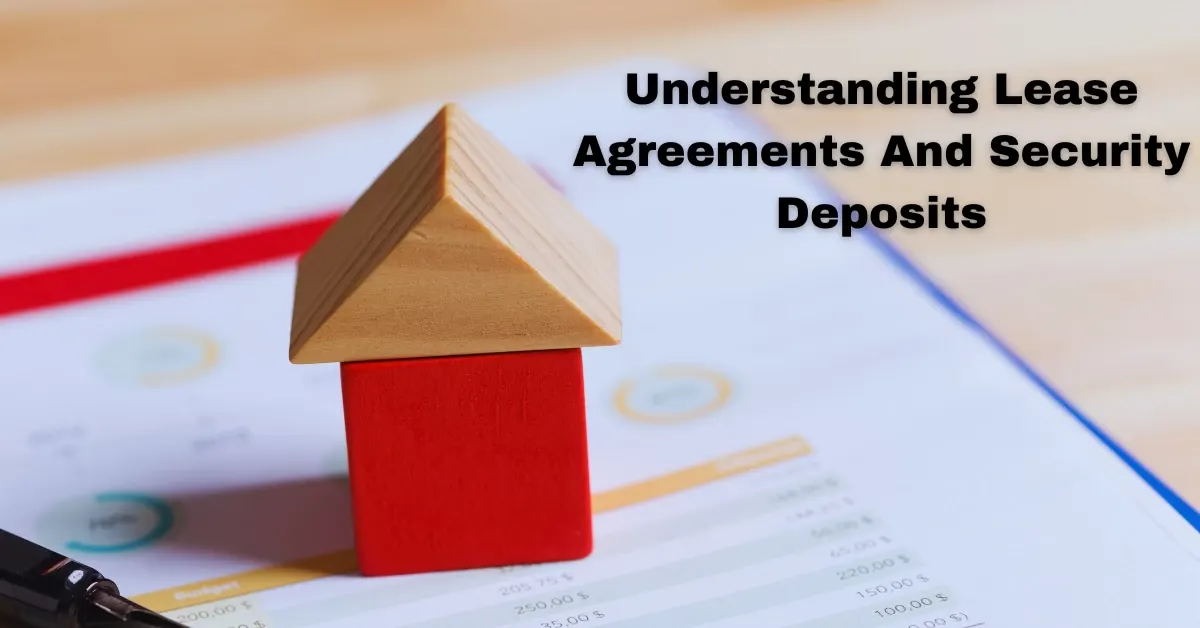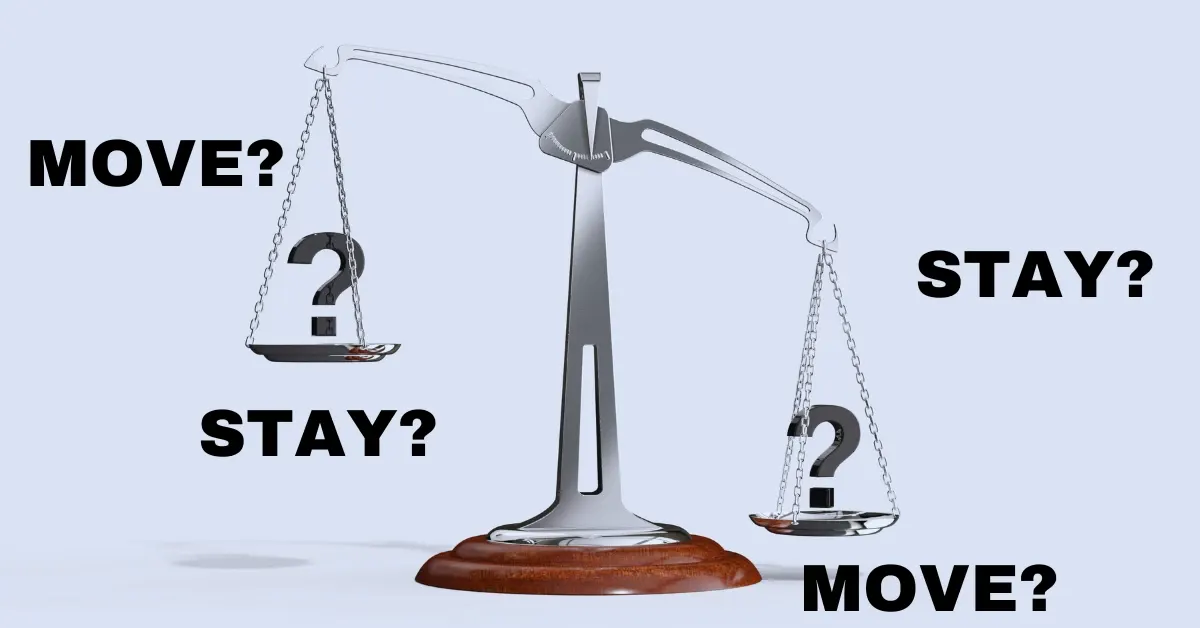What Happens When Your Private Landlord Dies? The Aftermath
If your private landlord dies, their estate and property will transfer to either their heirs or other beneficiaries according to their will.
As a tenant, you have legal rights to continue living in the property until the end of your lease agreement or until the new landlord decides to terminate your tenancy.
However, there are a few things you need to keep in mind, such as paying rent to the new landlord and signing a new lease if required.
In this article, we will discuss what happens to your tenancy when your private landlord dies and the steps you should take.

Private Landlords And Their Role In Real Estate
Private landlords are individuals who own and lease or rent out properties, such as apartments and homes, to tenants.
They play a crucial role in the real estate industry, offering a range of benefits and drawbacks for renters.
Let’s take a closer look at the definition of private landlords, their involvement in real estate, and the advantages and disadvantages of having one.
Private Landlords And Their Involvement In Real Estate
- Private landlords are individuals who own investment properties and rent them out to tenants in exchange for rent payments.
- Their involvement in real estate can take many forms, from owning one or two properties to having a large portfolio of rental properties.
- Private landlords play a significant role in the real estate industry, filling the need for rental properties that may not be met by larger property management companies.
Advantages Of Having A Private Landlord

Flexibility
Private landlords may be more willing to work with tenants on lease agreements or accommodations, such as allowing pets or subletting.
Personal touch
As individuals rather than corporations, private landlords may offer a more personal touch, building relationships with tenants and being more involved in day-to-day property management.
Lower rent prices
Private landlords may not have the overhead costs of larger property management companies, which can lead to lower rent prices for tenants.
Disadvantages Of Having A Private Landlord
Lack of professionalism
Private landlords may not have the same level of professionalism or experience as larger property management companies, which can lead to issues with property management or maintenance.
Limited resources
Private landlords may not have the resources or staff to handle larger issues or emergencies that may arise.
Inconsistent policies
Private landlords may have inconsistent policies across properties or tenants, leading to frustration or inequality among renters.
Consequences Of A Private Landlord Passing Away
When you’re renting a property, a landlord’s death is not something that most tenants tend to think about.
However, it is a situation that can happen, and it’s important for tenants to know what the consequences can be.
Let’s explore the various impacts that can occur when a private landlord passes away.
Impact On Tenants’ Lease Agreements
A lease agreement binds both the landlord and tenant to certain terms and conditions.
When a private landlord passes away, the lease agreement still remains valid unless otherwise specified under applicable law.
However, the consequences for the tenant can vary depending on the situation.
Here are some possible outcomes:
- If the deceased landlord was the sole owner of the property, and no provisions have been made for the transfer of the lease agreement, the tenancy may end, and the tenant may have to vacate the property.
- If the property was jointly owned, the tenancy may continue, but the tenant may be dealing with a new landlord or co-owner.
- If the landlord had a trust or an estate plan in place, the tenancy may continue with a trustee or an executor of the estate taking over as the new landlord.
Changes To Rental Payment Options
Following a private landlord’s death, there can also be changes to the rental payment options.
Tenants may find that they need to make payments to a different account, or the frequency of rental payments may change.
Here are some possible outcomes:
- If the landlord had an estate plan in place, the tenant may be asked to make rental payments to the executor of the estate, who will distribute the rent to the beneficiaries.
- If the landlord had a partner or co-owner, the tenant may be required to make rental payments to the surviving partner or co-owner.
- If the landlord had a trust in place, the tenant may have to direct rental payments to the trustee.
Potential Changes To The Property’S Ownership
Another impact of a landlord’s death is the possibility of changes to the property’s ownership.
When a private landlord passes away, the property can be transferred to another owner or a group of owners. Several scenarios can occur in this situation, including:
- If the landlord had a will, the property may be transferred to the beneficiary or beneficiaries named in the will.
- If the landlord had no will or estate plan, the property will be transferred according to the applicable laws of the state.
- If the landlord owned the property jointly with another person, the surviving owner becomes the sole owner of the property.
The death of a private landlord can have significant consequences for tenants.
It’s important to understand your rights and any changes that may occur under these circumstances.
It’s always advisable to seek legal advice to ensure that you are protected as a tenant.
Navigating The Legalities Of A Private Landlord’S Death
What happens when your private landlord dies: navigating the legalities of a private landlord’s death
Losing a landlord can be a stressful situation for tenants, particularly if they are not aware of the legal process involved.
Here’s what you need to know to navigate the legalities of a private landlord’s death.
Understanding The Legal Process For Succession And Inheritance
When a private landlord dies, their property becomes part of their estate.
The estate is then passed along to either the landlord’s beneficiaries or an executor, who will be responsible for managing the property until it is sold or transferred to someone else.
As a tenant, it’s important to know the legal process of succession and inheritance in your state, as it can differ from place to place. Here are a few key points to consider:
The landlord’s will
If the landlord had a will that specified who would inherit their property, the estate will be passed along according to their wishes.
State laws
In the absence of a will, the state’s laws of intestacy will determine who inherits the property.
Probate Process
The probate court will oversee the distribution of the estate. If you are unsure about the legal process, seek legal assistance to ensure your rights as a tenant are protected.
Options For Tenant’S Protection And Legal Rights
As a tenant in a property with a deceased landlord, you have certain rights that must be upheld by the executor or the landlord’s beneficiaries. These include:
- The right to a safe and habitable living environment.
- The right to receive proper notice if the property is to be sold or transferred to someone else.
- The right to continue occupying the property until the lease agreement expires.
- The right to receive your security deposit back when you move out.
It’s important to note that the executor or beneficiaries must follow all applicable state and federal laws regarding tenancy and property ownership.
If they fail to do so, you may have legal recourse.
Considerations For Moving Out Or Finding A New Property
If you are uncomfortable remaining in the rental property or if the new owner wishes to sell or move in, you may need to move out. Here are a few things to consider:
Review your lease agreement
Review your lease agreement and determine the steps you need to take if you need to vacate the property earlier than expected.
Look for a new property
Start looking for a new property as soon as possible to avoid being left without a place to live.
Communication with the executor or beneficiaries
Communicate with the executor or beneficiaries to determine how much notice you will receive about vacating the property and whether they will be willing to offer any compensation for your inconvenience.
Navigating the legal process of a deceased landlord can be challenging, but by understanding your rights and seeking legal assistance if needed, you can take the necessary steps to protect yourself as a tenant.
Understanding Lease Agreements And Security Deposits
When you rent from a private landlord, there may be some anxiety about what happens if the landlord dies.

This is particularly important when you have signed a lease agreement and are given a security deposit. We will explore these issues in more detail.
Review Of Common Lease Agreement Provisions
Lease agreements can be long and complex. However, several provisions are standard across many agreements. Some of the key points include:
- Duration of the lease agreement: This provision specifies the length of time you will rent the property.
- Rent amount and payment schedule: This clause outlines the monthly rental amount and when you should pay it.
- Security deposit requirements: This explains how much deposit you must give and under what conditions the landlord can withhold all or part of the deposit.
- Maintenance responsibilities: The agreement outlines which party is responsible for maintaining the property.
- Termination and renewal options: This provision describes how you can end or renew the lease.
What Happens To Security Deposits When A Landlord Dies?
If the landlord dies, the security deposit may be held by the executor of the landlord’s estate.
In most cases, you will continue to rent the property under the same terms as stated in the lease agreement.
Requesting the return of the deposit
If you have completed your lease agreement’s terms, you are entitled to get back the security deposit. You should request its return from the landlord’s estate’s executor.
Deductions from the security deposit
The executor may deduct any unpaid rent or other expenses incurred before the landlord’s passing.
Lease Termination
In some cases, the landlord’s death might alter the terms of the lease agreement.
If a family member inherits the property and does not want to continue renting it out, they may terminate the lease.
Legal Rights And Options For Tenants After A Landlord’S Death
What happens when your private landlord dies: legal rights and options for tenants after a landlord’s death
Losing a landlord can be an emotionally challenging situation, and dealing with the legal repercussions can feel overwhelming.
As a tenant, it’s essential to understand your legal rights and options when your private landlord dies.
Let’s explore state laws, lease terminations, and potential liabilities for rent payments.
Understanding State Laws For Rental Properties
When your private landlord passes away, state laws become critical in determining your legal rights as a tenant. Here are some essential laws to be aware of:
- Legal representation may be necessary if the landlord’s family disputes the property’s ownership.
- The property may be subject to a probate court sale or the family members’ transfer.
- The lease agreement remains valid even after the landlord’s death, and the tenant is obligated to continue payments to the new owner.
- State laws provide varying degrees of protection for tenants in situations where the landlord dies or the property is sold.
Exploring Tenant’S Options For Lease Terminations Or Renewals
If you’re a tenant looking to terminate your lease after your landlord’s death, you have a few options:
- Check the lease agreement for any language that specifies conditions of lease termination after the landlord’s death.
- Attempt to negotiate a lease termination or renewal with the landlord’s family or new owner.
- Find a legal justification to terminate the lease in the absence of a clear lease provision or negotiation.
Tenants may also renew their lease with the new landlord or allow it to run its course under the same lease terms and conditions.
Potential Liability For Remaining Rent Payments
After your private landlord’s death, you may be legally obligated to continue to pay rent to the new owner or landlord.
Keep these key points in mind to manage your rent payments effectively:
- In some states, landlords must provide notice before rent is due if ownership changes occur mid-lease.
- If the transfer of ownership in a probate court sale exceeds the lease term, the new owner may not retain the right to renew the existing lease.
- Your liability for rent payments will depend on the specific terms of your lease agreement and state law.
Navigating The Process Of Transferring Property Ownership
Losing a landlord can be a difficult and confusing time for tenants, especially when it comes to property ownership transfer.
The process of transferring property ownership after a landlord’s death can often be complicated and overwhelming, but tenants can take certain steps to protect their rights during this time.
We will explore the legal considerations for property transfer, the options for tenant protection during property transfer, and the steps for finding a new residence.
Legal Considerations For Property Transfer
When a private landlord dies, the transfer of ownership of their properties depends on various factors such as their will and local laws.
The most common outcomes of the transfer of ownership are:
- If the landlord had a will, the property will be transferred to the person or persons named as beneficiaries in the will.
- If the landlord did not have a will, the state will decide how to distribute the property.
During this process, tenants might experience the following:
- The property has been sold to new owners who may have different investment interests, leading to an increase in rent or eviction.
- The property may remain unsold, leaving uncertain rent and maintenance responsibilities.
Options For Tenant’S Protection During Property Transfer
Tenants have certain protections during property transfer, which vary depending on state and local laws. Some typical tenant rights during property transfer include:
- The right to remain in the property for a certain period, such as the remainder of the current lease or a specified notice period.
- The right to receive notices about any changes in property ownership and management.
- The right to recover their security deposit or prepaid rent upon vacancy.
Tenants should check their lease and state law to confirm their rights and seek legal advice, if necessary.
Steps For Finding A New Residence
If the property is sold or if the new landlord decides to evict tenants, it is essential for tenants to find a new residence. Here are some essential steps to follow:
- Start by researching the rental market in your area, including the prices and neighbourhoods.
- Draft a budget that considers moving expenses, security deposit, and first month’s rent.
- Prepare necessary documentation, such as rental histories, employment letters, and references, which the new landlord may require.
- Contact a real estate agent or seek rental listings online to find a suitable rental property.
- Schedule appointments to take tours of rental properties and select the most suitable one.
- Once you’ve found the perfect rental property, negotiate terms and sign a new lease.
When a private landlord dies, the transfer of property ownership can be a stressful and confusing time.
Tenants should be aware of their legal rights during property transfer, seek legal advice if necessary, and take the necessary steps to find a new residence if required.
Remember to always stay informed and protect your rights as a tenant.
Making The Decision To Stay Or Move
When your private landlord dies, it can be a difficult situation to navigate. You may be wondering what your next steps should be and how they will affect your living situation.
One of the biggest decisions you’ll have to make is whether to stay or move.
Here are some factors to consider when making that decision.
Factors To Consider When Deciding To Stay Or Move

Your relationship with the landlord’s estate representatives
Depending on who is handling the estate, you may have a good relationship or a strained one.
If there is potential for a positive relationship, it might be worth staying in the property.
However, if it seems like it will be difficult to communicate with the estate representatives, it may be best to find a new place to live.
Your financial situation
If you are struggling to make ends meet, moving to a new property may not be financially feasible.
On the other hand, if you can afford to move, it might be a good opportunity to find a place that better fits your budget.
The condition of the property
If the property is in good condition and requires minor repairs, staying might be a good choice.
However, if the property is in disrepair and requires significant maintenance, it may be best to look for a new place to live.
The location
If you love the area where you live, it might be worth staying, even if that means finding a new property.
However, if you’re not happy with the location, moving might be the perfect opportunity to find a place that better suits you.
Understanding Your Lease Options:
Month-to-month lease
If you’re on a month-to-month lease, the lease will terminate when the landlord dies. You can then choose whether to continue living on the property or leave.
Fixed-term lease
If you’re on a fixed-term lease, you have the right to continue living in the property until the end of the lease.
However, you may have to negotiate a new lease with the estate representatives.
Rent-controlled lease
If you’re on a rent-controlled lease, you have the right to continue living in the property at the same rent-controlled rate.
Buyout
In some cases, the estate representatives may offer you a buyout in exchange for vacating the property. This can be a good option if you’re ready to move.
Finding A New Rental Property
When your private landlord dies, finding a new rental property can be a daunting task.
Depending on your lease and local laws, you may have to move out after a certain time. Here are some options and tips to help you locate and screen potential rental properties.
Options For Locating A New Rental Property
- Check online apartment listing websites such as Zillow, Craigslist, and apartment finder.
- Consult with a local real estate agent who can help you find available rentals in your desired area.
- Look for “for rent” signs in neighbourhoods you want to live in.
- Ask family and friends if they know of any available rentals.
- Check social media groups and community forums for rental leads.
Tips For Screening Potential Rental Properties
- Research the landlord or property management company to ensure they have a good reputation and experience.
- Check for any complaints or negative reviews about the property or landlord online.
- Inspect the property thoroughly for any damages or red flags such as pests, mold, or leaks.
- Ask about the lease terms, rental prices, and any additional fees or expenses such as utilities or security deposits.
- Clarify any rules or restrictions such as noise levels, pet policies, or smoking policies.
Frequently Asked Questions Of What Happens When Your Private Landlord Dies
What Happens To My Lease If My Landlord Dies?
If your private landlord dies, your lease may still be valid. The executor of the landlord’s estate is responsible for managing their properties, including your rental agreement.
Who Is Responsible For Maintaining The Property After The Landlord’S Death?
After the landlord’s death, the executor of the estate is responsible for maintaining the rental property. They may hire a property manager or continue to manage it themselves.
Can The Executor Of The Estate Sell The Rental Property After The Landlord’S Death?
Yes, the executor of the estate has the authority to sell the rental property after the landlord’s death. The new owner would take over as the landlord and be responsible for managing the property.
Can I Be Evicted From My Rental If My Landlord Dies?
In most cases, you cannot be evicted from your rental if your landlord dies. Your lease is still valid and the executor of the estate is responsible for managing the property and upholding the terms of the rental agreement.
Conclusion
When your private landlord dies, don’t panic – laws are in place to protect your rights. You may experience a change in management, but your lease and its terms stand firm.
Keep your communication channels open, pay your rent on time, and seek legal advice if necessary, to navigate smoothly through this transition.